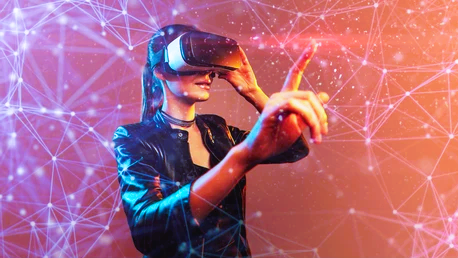Virtual reality (VR) is a technology that creates a simulated environment or a three-dimensional image that can be interacted with. It has been around for decades, but recent advancements in hardware and software have made it more accessible and reasonable. As a result, VR has many applications, challenges, and opportunities that make it an exciting field to explore.
One of the most popular applications of VR is in gaming. VR gaming allows players to experience immersive gameplay, making them feel part of the game world. The technology can create realistic environments, and players can interact with the game using motion controllers or even their bodies. As a result, VR gaming has become more prevalent in recent years, with games like Beat Saber, Half-Life: Alyx, and Skyrim VR gaining widespread popularity.
Another application of VR is in education and training. VR can simulate real-world scenarios, allowing learners to practice and acquire skills in a safe and controlled environment. For example, medical students can use VR to practice surgeries without the risk of harming a patient. At the same time, pilots can use VR to simulate flight situations that would be too dangerous to practice in real life.
However, VR also presents some challenges that need to be addressed. One of the biggest challenges is the issue of motion sickness. VR can cause motion sickness, especially if the user’s movements do not match what they see in the virtual world. This can limit the time users spend in VR and affect their overall experience. Another challenge is the cost of the technology. While VR has become more affordable in recent years, it still requires a significant investment, making it inaccessible to some users.
Despite these challenges, VR presents many opportunities for innovation and growth. As technology continues improving, we expect to see more advanced and accessible VR systems. This could lead to new applications in healthcare, architecture, and entertainment. VR could also be used to create new types of social experiences, allowing people to connect with others worldwide in virtual environments.
In conclusion, the world of virtual reality is constantly evolving and expanding. From gaming to education to social experiences, VR presents many exciting opportunities. However, it also poses some challenges that need to be addressed. As we continue to explore the possibilities of VR, it will be essential to consider these challenges and find ways to overcome them.
Who we are: Funded.com is a platform that is A+ BBB rated over 10+ years. Access our network of Investors, get instantly matched with a Lender, or get a business plan by visiting us Funded.com
You can review our featured partners to help your success with your business or project.





 Rss Feed
Rss Feed


